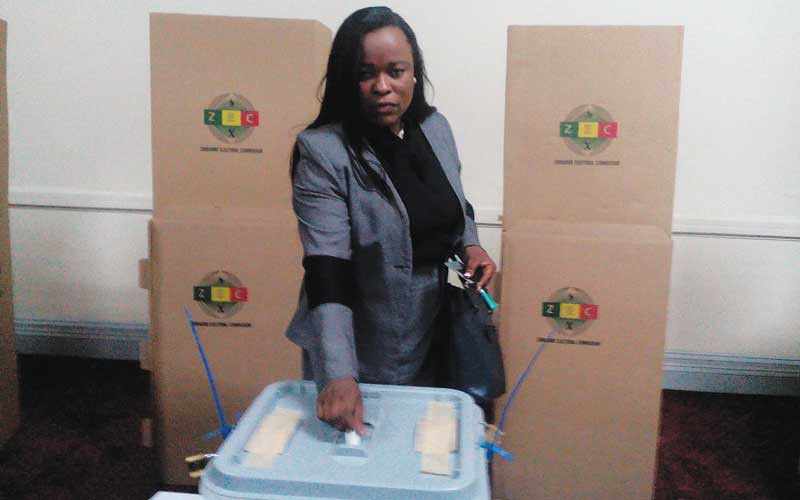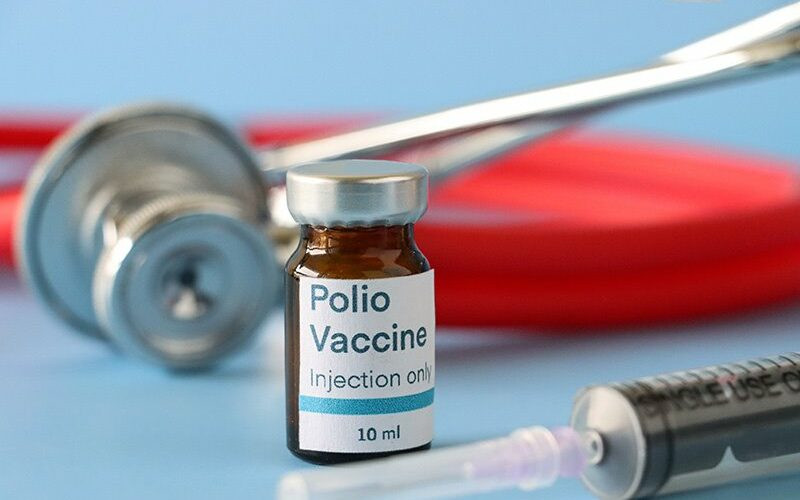
IN the Economic Governance Watch 1/2022, we reported that the International Monetary Fund (IMF) had published its executive board’s report on its 2022 Article IV consultation with Zimbabwe. The report can be accessed on the Veritas website.
The IMF explains on its website why it reports on member States such as Zimbabwe and how its reports are prepared:
When a country joins the IMF, it agrees to provide the IMF with data about its economy.
The IMF’s regular monitoring of economies and associated provision of policy advice is intended to identify weaknesses that are causing or could lead to financial or economic instability. This process is known as surveillance.
Country surveillance is an ongoing process that culminates in regular (usually annual) comprehensive consultations with individual member countries.
The consultations are known as “Article IV consultations” because they are required by Article IV of the IMF’s Articles of Agreement.
During an Article IV consultations, an IMF team of economists visits a country to assess economic and financial developments and discuss the country’s economic and financial policies with government and central bank officials.
IMF staff missions also often meet with parliamentarians and representatives of business, labour unions, and civil society.
- Chamisa under fire over US$120K donation
- Mavhunga puts DeMbare into Chibuku quarterfinals
- Pension funds bet on Cabora Bassa oilfields
- Councils defy govt fire tender directive
Keep Reading
The team reports its findings to IMF management and then presents them for discussion to the executive board, which represents all of the IMF’s member countries.
A summary of the board’s views is subsequently transmitted to the country’s government. In this way, the views of the global community and the lessons of international experience are brought to bear on national policies.
Summaries of most discussions are released in Press releases and are posted on the IMF’s web site, as are most of the country reports prepared by the staff.
The report covers the period 2020 to 2021 and is the result of consultations with Treasury, government officials, civil society and other stakeholders, in which issues relating to Zimbabwe’s economic performance were discussed.
The report begins by pointing out that Zimbabwe’s economic problems have been caused, at least partially, by external factors:
“Zimbabwe experienced severe exogenous shocks (Cyclone Idai, protracted drought, and the COVID-19 pandemic) during 2019-20, which along with policy missteps in 2019, led to a deep recession and high inflation,” the report read.
As a result, real GDP (gross domestic product), the total value of all goods and services produced within the country contracted cumulatively by 11,7% during 2019-20 and inflation reached 837% (year on year) by July 2020.
The IMF noted that government’s commendably swift response to the COVID-19 pandemic helped to contain its adverse impact:
In 2020 pandemic-related spending, equivalent to 2% of GDP, was financed by reallocation within the budget.
In 2021, such outlays represented about 1,6% of GDP and were partially financed by a Special Drawing Rights allocation from the IMF.
Expenditure was increased to bolster food security and farm inputs to vulnerable households.
The Reserve Bank of Zimbabwe introduced a medium-term bank accommodation lending facility and a private sector lending facility.
The report notes that GDP rose by 6,3% in 2021 buoyed by a bumper harvest, increased mining output and a buoyant construction industry.
By the end of 2021 inflation had fallen to 60,7% year on year. Fiscal policy was tightened in 2020-21 and the current account balance turned into a surplus.
The report also noted, however, that high double-digit inflation persisted and there were parallel foreign currency markets with widely different exchange rates. Poverty levels rose and about a third of the population was at risk of food insecurity.
The IMF expected the output recovery to continue, though at a slower pace, with GDP growing by 3,5% in 2022 and by 3% in the medium term.
Government hoped to limit the budget deficit to 1,5% of GDP in 2022 and below 2% in the medium term.
On the other hand:
- Increasing imports and declining overseas remittances meant the current account surplus was expected to decline over the medium term.
- Drought and the COVID-19 pandemic would have a persistently adverse effect on the economy.
- International re-engagement had faltered, with Western countries seeking political and economic reforms. Government made token payments to overseas creditors in a bid to make progress on re-engagement.
The IMF’s 2019 Staff-Monitored Programme was patchily implemented and came to an end without a review. –Veritas
Fossil fuel products addiction killing this world
A SILVER lining could be extracted from very high gas prices through less gratuitous fuel waste.
For one thing, I often observe parked vehicles idling for many minutes, even in very warm weather.
Sometimes I also see the exhaust spewed by a vanity vehicle, a metallic beast with the signature superfluously very large body and wheels that don’t at all appear used for work or family transport.
They are the same gratuitously huge monsters, that when parked on roadside, hazardously block the view of small car operators turning or crossing through stop-signed intersections; and they look and spew thick exhaust as though they might get about 25 gallons to the mile.
Inside each is the operator, typically staring down into their lap, probably their smartphones.
I could not help wondering whether they are some of the people posting complaints onto various social media platforms about a possible gas tax/price increase, however, comparatively small.
In Canada, the carbon tax, though it’s more than recouped via government rebate (except for the high-incomed), induces much pastime complaining.
Meanwhile, mass addiction to fossil fuel products undoubtedly helps keep the average consumer quiet about the planet’s greatest polluter, lest they feel and/or be publicly deemed hypocritical. –Frank Sterle Jr
Govt must stop docking teachers’ salaries
TEACHERS’ unions slammed the government for docking salaries of teachers who earlier in the year failed to turn up for work citing incapacitation.
One educator says they only got paid $15 000 after $10 000 was deducted. It is really not fair considering that the educators have been demanding a salary increase for a long time.
They are demanding a basic salary of US$540, but the cash-strapped government has failed to meet the demand resulting in teachers not reporting for duty.
The teachers are yet to establish the main reason for the deductions.
This is coming at a time when the teachers are complaining about the rising cost of living in the context of stagnant salaries, yet the same employer goes on to punish members by deducting more from their salaries.
The deductions are ranging from $4 000 to $14 000, so the teachers are not yet clear whether this is the work of the Public Service Commission regarding those members that had actually absented themselves from work as a result of incapacitation.
It’s really a sad development.
Honestly, how can such amounts be deducted for teachers who are already failing to put food on the table.
What pains the most is that the deductions came as a shock and have left and rendered the educators poorer than before.
Government insists that when teachers absent themselves from work, the days are considered as leave without pay.
The employer says when they absent themselves, it means they are away from work illegally, so the pay for the days they are away from work will be deducted. –CITE
IN response to ED turns to Polad for economic solutions, ERNEST MWELLASIE says: Being a leader needs innovation, Mr President. You must be firm. Change your objectives, move with the times and be a true Zimbabwean. Suffer with the people, listen to the masses. Your advisers might mislead you, but have a vision and do only the right things and guide the country towards prosperity. Recent events indicate that you are surrounded by wrong people. Act wisely for the sake of the population and the country.
WISHMORE GARANGANGA says: You are consulting the wrong people Mr President. Electoral reforms first, then we start from there.
DOMNIQUE VINT says: The solution is very simple Mr President. Dissolve Cabinet and resign. Build confidence in the masses and then the economy will stabilise. Just show patriotism to your country and save it from this disaster by resigning.
IN response to Teachers demand for US$540 salaries misleading: Mthuli, MAJID ZELENSKY says: It’s high time salaries and perks of all government ministers are made public. How much is Finance minister Mthuli Ncube earning? Give him $21 000 per month and let him pay for his fuel, electricity, water and council bills. After all, he is a civil servant just like the teachers.
KENNETH MCKENZI ZARANYIKA says: I think the amount they are demanding is fair, even for a junior teacher. Instead of paying lobby firms US$100 000 per month or so, government can fight its own cause so that the sanctions can be removed. Invest where it matters the most — in your people.
MDUE MBULELO MAKHAKHI says: The salary teachers are demanding is still not good enough. They really deserve more than that. We cannot always expect government workers to accept peanuts just because they are Zimbabweans, yet looters are getting away with real money — US dollars.
IN response to Fuel prices up, again, ZAMANI NYATHI says: We must vote in numbers to elect leaders who put people first.
DONEMORE MAJONGA says: Government claims that by raising ethanol blending to E20, fuel will be cheaper, yet the opposite is actually happening. Fuel is becoming more expensive. Government is indicating left and turning right.











